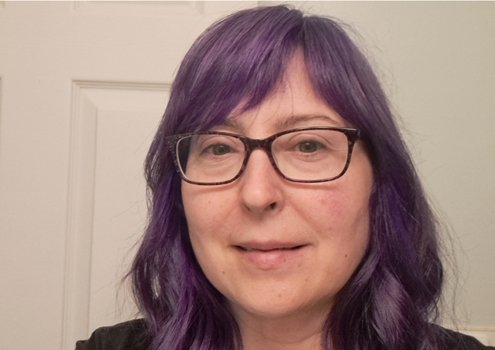Reading time: About 2 minutes
Write Kit Daven keeps a mantra posted near her computer. It reads: By Any Means Necessary….
Kit Daven’s heart beats for the eerie and the extraordinary in her tales. Her sci fantasy series, A Xiinisi Trilogy (The Forgotten Gemstone, The Other Castle, and The Starry Rise), possesses demonly threads running through the epic trans-dimensional landscape. In the novella, The Arrest in Mannequin Row, she steps out of the fantasy realm into an urban one, where the living and dead collide in a town beneath the lake waters. Watch out for the spider that never dies in Spider Spun and the supernatural senior in the dystopian story The Cannibal’s Handbook.
I was excited to talk to Kit about how she approaches writing.
Q. Roughly how much time do you spend writing every day?
When I’m drafting a story, I do my best to write three to four days a week, depending on my schedule. When I can, I’ll immerse myself in writing for a good two to three-hour block of time with mini breaks. When I’m revising, I will work on a section, then put it down until the next day, and can usually do revisions every day.
Q. What’s a simple activity or habit that makes you a better writer?
Whenever I start a new project, I always commit to learning something new about the craft. In addition, I target one problem area in my writing and work on improving it. Another habit of mine is to review story fundamentals and story theory in between projects. When it’s time to work on the next project, I put the story theory away.
Q. What interferes with your writing?
Doubt. A simple thing but very powerful for casting a wrench into my process, and after burning out about two years ago on this writing journey, I’ve been grappling with doubt quite a bit this past year. Thankfully, I’ve been able to push through, and that’s really the trick to defeating doubt — feeling it, acknowledging it, and writing the words anyway.
Q. How do you persuade yourself to sit down to write on days when you really, really DON’T feel like doing it?
On days when drafting new words feels like an impossibility, I still give it a go. Sometimes, scratching at an itch to write that isn’t there will create the itch, and before I know it, the writing comes and it’s rejuvenating. When that doesn’t happen, I focus on research, updating world-building notes, and anything that will assist with my next writing session.
Q. Is there a particular motto or saying that you’ve found helpful for writing?
For over a decade now, the mantra posted near my computer reads: By Any Means Necessary! I still adhere to that. And my all-time favourite quote is from Maya Angelou: “Success is liking yourself, liking what you do, and liking how you do it.” Unfortunately, I have difficulty staying on track with the “liking how you do it” part of that quote. I’m working on that.
Q. Which stage of the writing process do you enjoy the most: researching, writing or editing/rewriting and why?
My favourite parts of the writing process are: 1) the developmental stage, where I sort out the premise, the characters, and the basic world-building; 2) the drafting process; 3) line editing. The most fascinating part of this process is observing the reduction and refinement of the story that occurs from revision and editing.
Q. What’s one of the best books you’ve read (either fiction or non) in the last five years?
The one book that stands out in my mind is Joe Hill’s 20th Century Ghosts. I have a lot of favourite stories from that horror collection, but “He Will Hear the Locust Sing” deeply affected me. This collection turned me into a fan of Joe’s writing.
Q. What book are you reading right now?
I’m currently reading Fourth Wing by Rebecca Yarros. There’s been a lot of praise and criticism toward the book online, and I wanted to see what all the fuss was about.
Q. What do you think is the biggest misperception that new writers have about the act of writing?
From my experience chatting with some new writers and non-writers, they think because a book is easy to read, then it must have been easy to write. When I explain to them that fluent prose comes from a lot of revision and editing, they never believe me.
Kit Daven lives with her husband and her feline familiars amidst the quiet hills of Hespeler, Ontario.


